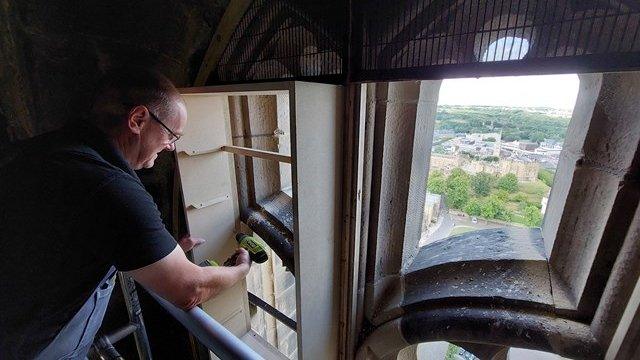Dehydrated bats fell from Durham Cathedral roof in heatwave
- Published
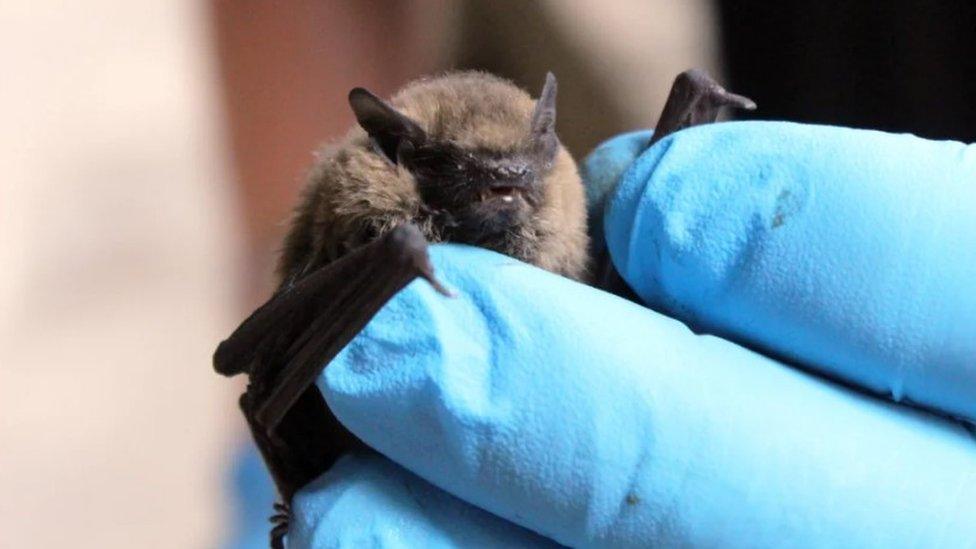
The Durham Bat Group decides whether the bats are fit enough to be released back to their roof home
Dozens of bats dehydrated during the recent heatwave have been nursed back to health after falling from a cathedral roof.
Durham Cathedral has a colony of about 600 pipistrelle bats and many have fallen to the cloisters' floor.
The Durham Bat Group has helped train staff in "bat first aid" and they have been patrolling the cloisters daily to pick up sick mammals.
The group said the dedication of staff had saved many of the colony.
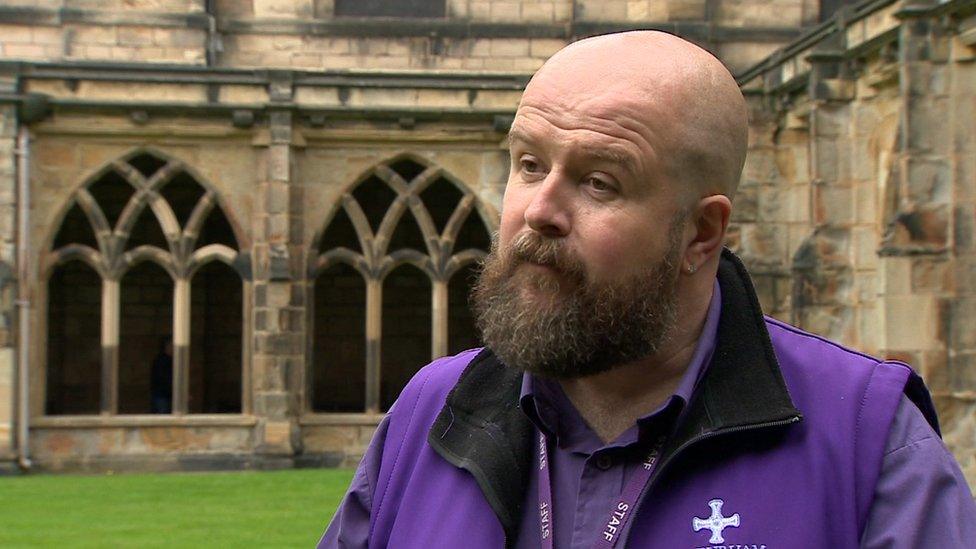
Simeon Pallister of the Cathedral Experience Team carries out daily patrols going to the aid of sick bats
Simeon Pallister, of the Cathedral Experience Team, said: "We handle the bats gently, place them in the bat ambulance, which has a little lid, with some water.
"The ones that are poorly, dehydrated or young, we feed them and, using a syringe, give them tiny droplets of water.
"Then you see them slowly taking the water and gaining the energy."
He said between 14:00 and 17:00 BST is the busiest time for falling bats.
"We constantly hear on the radio, 'can anyone come to a bat? bat in the cloisters, bat in a doorway, bat in the shop'. On a morning we also do a sweep, just to check there's none on the floors."
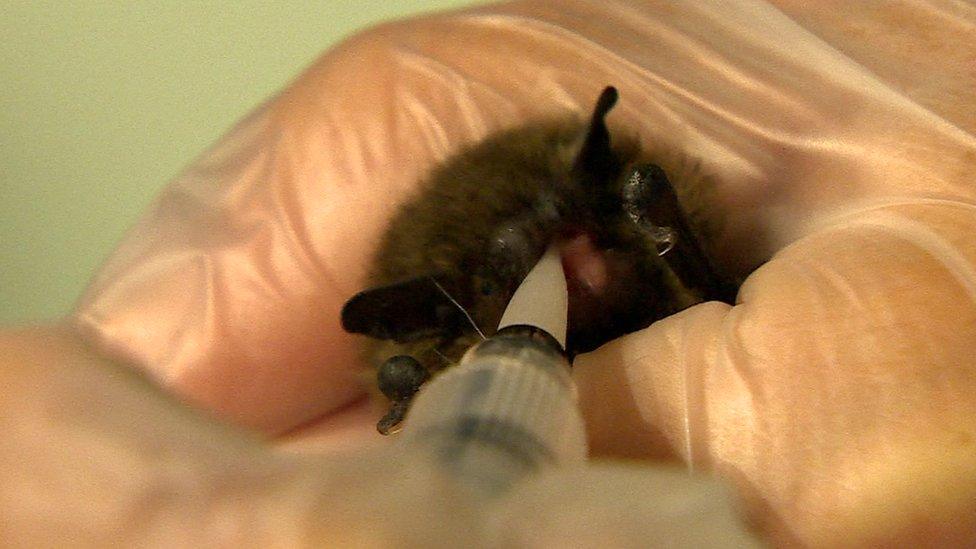
The dehydrated bats are given water and mealworms to get them back to full strength
Pipistrelles are small bats, recognisable by their brown fur and black wings and face.
They are the smallest and most common bat in the UK, measuring between 3.5 and 4.5cm in length.
Despite their size, they can easily eat 3,000 insects per night which they catch in flight, external using sonar.
Around October, they become less active and by December go into hibernation, taking advantage of the warmth and shelter provided by the buildings they have inhabited.
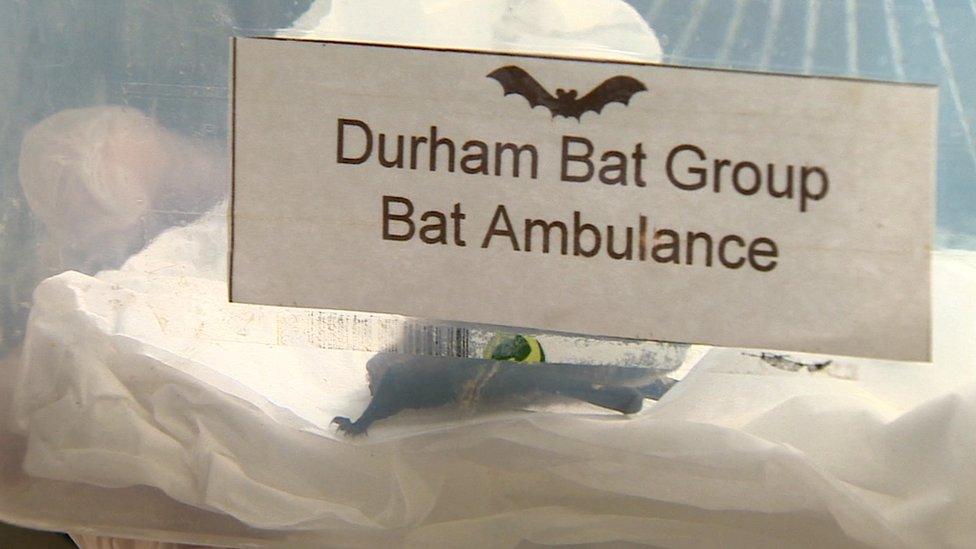
The sick bats regain their strength resting in the "bat ambulance"
Melissa Young, trustee of the Durham Bat Group, visits the cathedral daily to check on any patients in the bat ambulance.
She decides whether they are fit enough to release back to their roof home.
"We make sure they have fresh water, keep them warm and see how active they are," Ms Young said.
"If they need extra care, we give them some mealworms. Once they are back to a good weight, we release them."

Follow BBC North East & Cumbria on Twitter, external, Facebook, external and Instagram, external. Send your story ideas to northeastandcumbria@bbc.co.uk, external.
Related topics
- Published13 October 2022
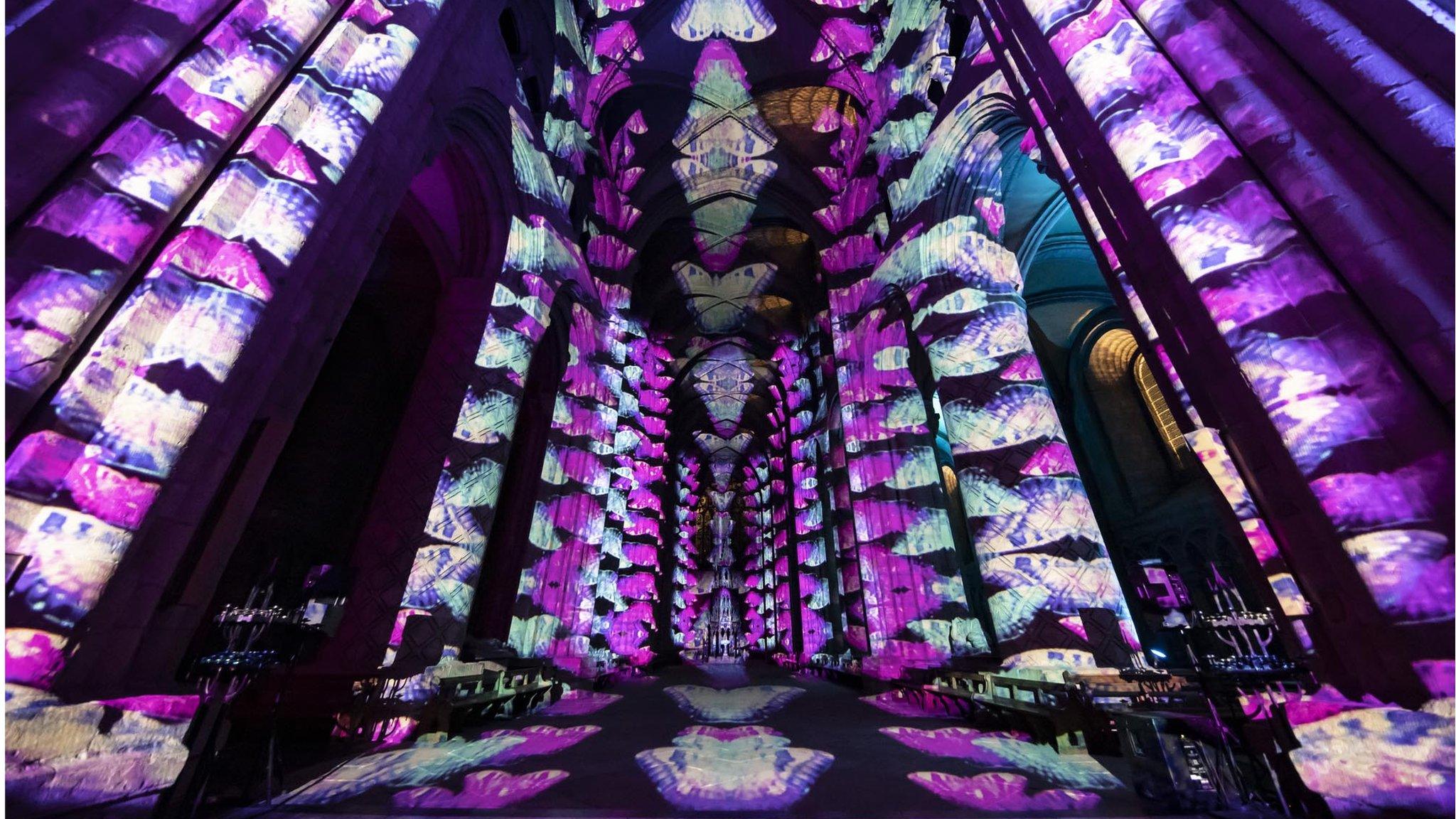
- Published20 November 2021

- Published4 February 2022
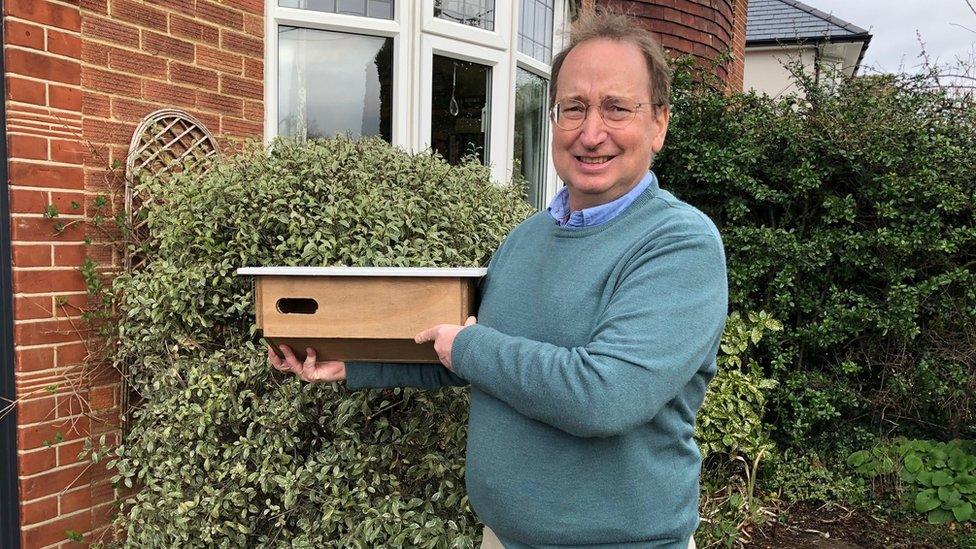
- Published25 August 2022
